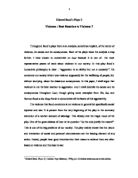The repercussions of Karachi violence
By Amna Qayyum
One of the basic duties of the state is to provide protection to the life and property of its citizens. Does fact make you ponder over the course of Pakistan’s history? Does it make you come to the conclusion that ever since Pakistan was created there has been disorder and confusion in the country on one pretext or the other? Whether it is the three martial laws that have been imposed upon us, the breaking away of East Pakistan, the three wars fought with India, the age old dispute between the provinces on sharing powers or our everyday life which is rent with crime, Pakistan has become notorious for being a politically unstable nation.
Since the month of May, Karachi has witnessed a chain of events that have steadily continued to wreck its setup and foster chaos in civilian life.
The month began with suicide bombing at Hyderi Mosque that killed 22 people. Apart from the violence observed at the May 11 by-election’s that killed six people a further two people were killed when a bomb blast occurred at the Karachi Port Trust Building on May 25. A day later two bombs exploded at the Pakistan American Cultural Centre and on May 30 the unthinkable occurred, Mufti Shamzai, a highly respected Muslim cleric was assassinated. A suicide bombing on May 31 at the Ali Raza Imambaragh killing 18 people spoke volumes of the hypo-ethical situation that has developed in Karachi, a city that was once the pride of Pakistan. Widespread riots and protests have taken place in the city adding fuel to the fire of disorder.







